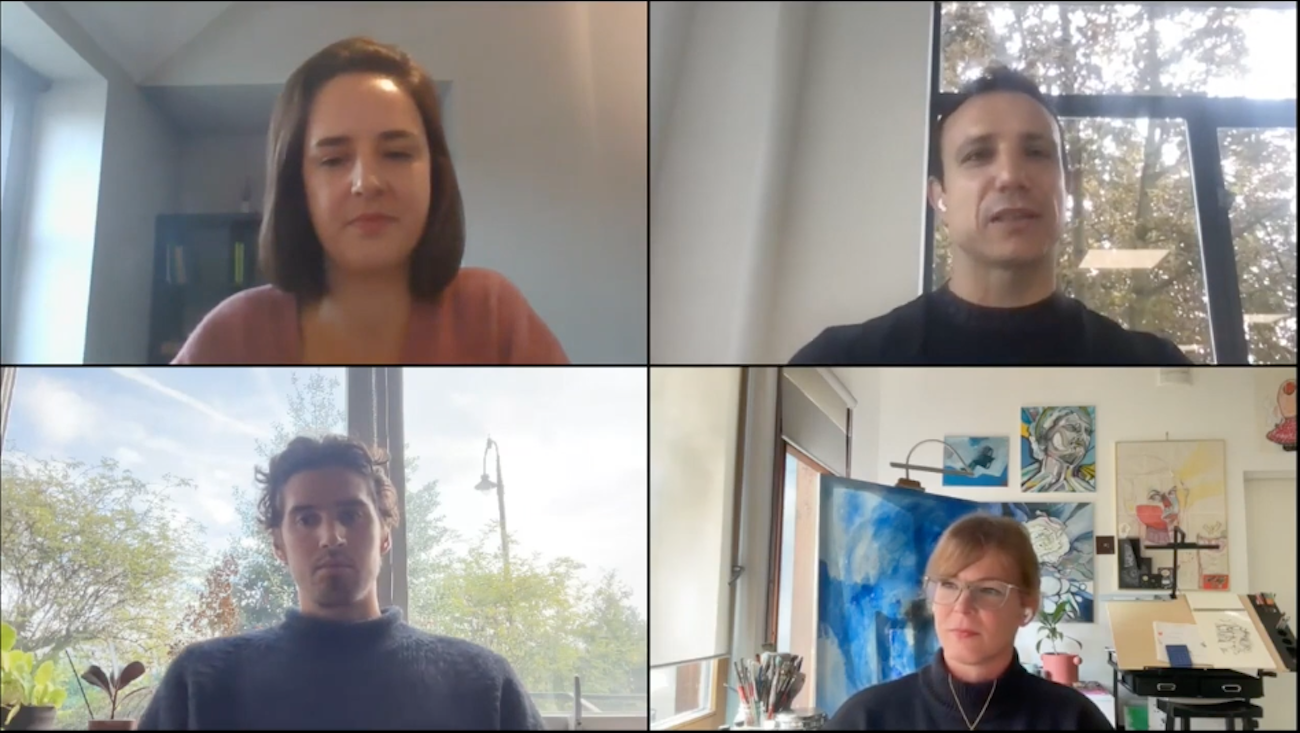The Panelists
Shay Strong is VP of Analytics for ICEYE, focusing on deciphering radar imagery and ensuring its accuracy, especially for disaster response and recovery efforts. She has a background astrophysics and experience in space analytics, and her career has shifted from studying the universe to analyzing changes observed from space-based tools.
Darko Matovski, the co-founder and CEO of causaLens, has charted AI from being a relatively unknown field to its current status as a transformative technology. causaLens, in particular, stands out as the pinnacle of excitement for him, with a vision to revolutionize decision-making through causal AI.
Rounding off the panel is Julian Godding, the lead data scientist at Gardin, who explains how AI and machine learning can be used in agriculture—Gardin focuses on creating a digital plant computer to optimise food production in indoor environments using AI. He shared how his background in chemistry and research on perovskite solar cells ultimately led him to the agricultural sector.
AI in action
Strong began by explaining that ICEYE leverages AI to process and interpret space-based data, particularly radar imagery. This data is vast and complex, requiring AI to make sense of it. ICEYE's goal is to become a global reference point for quantifying change on Earth, with applications in insurance, reinsurance, and natural catastrophe response.
For Matovski, the role of causal AI in decision-making is key. Noting that traditional machine learning often relies on historical patterns, which can introduce bias and lead to unforeseen consequences. Causal AI, on the other hand, enables machines to reason in a manner similar to humans, making decisions more trustworthy and aligned with real-world logic. causaLens aims to democratize this technology, making it accessible to organizations of all sizes.
Ethical Considerations
Godding stressed the need for regulation to protect vulnerable individuals, particularly in cases involving child safety. While advocating for AI progress, he emphasized the importance of safeguarding against potential harm.
Strong pointed out the importance of accountability and responsibility in AI, especially in remote sensing and Earth observation. She discussed the potential biases in data collection and the need to ensure equitable access to high-quality data. Meanwhile, Matovski highlighted the risks of using AI that relies solely on historical patterns, leading to biased outcomes. He advocated for the use of causal AI, which allows for the inspection and understanding of AI's decision-making processes.
Generative AI Unveiled
Godding shed light on the exciting world of generative AI, explaining how it can create synthetic datasets, even for rare crop diseases, without relying heavily on historical data. This opens up exciting possibilities, especially when real data is scarce.
Matovski explored the fusion of large language models with causal AI, envisioning more versatile AI systems with enhanced capabilities across various domains.
The Future
So where is it all going?
Godding spoke about the potential democratization of AI, where individuals with domain knowledge could harness AI's power to address industry-specific challenges. He saw AI as a tool that could make the seemingly magical possible. Shay Strong meanwhile expressed excitement about the concept of a "Queryable planet." She envisioned a future where AI could provide comprehensive and actionable insights about Earth, addressing complex global challenges such as climate change and disaster response.
Darko Matovski envisioned AI's potential to address critical challenges on a global scale. He emphasized the need to use AI safely and responsibly, harnessing advanced science to develop trustworthy AI systems.
*
From addressing complex challenges in agriculture to processing space-based data and ensuring ethical AI development, the insights shared by the panelists shed light on the incredible potential and responsibilities associated with AI. As we navigate the evolving landscape of AI, it's crucial to harness its power for good while mitigating potential risks, ensuring that AI truly becomes a force for positive change in our world.









